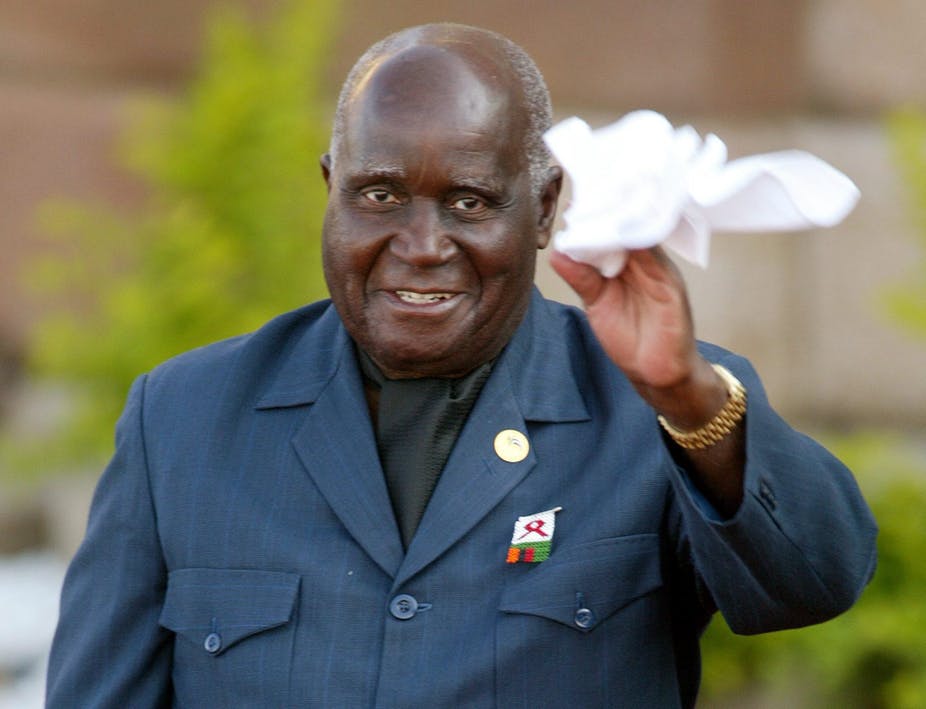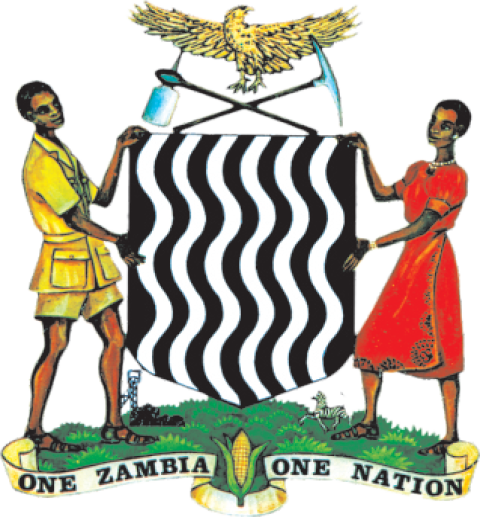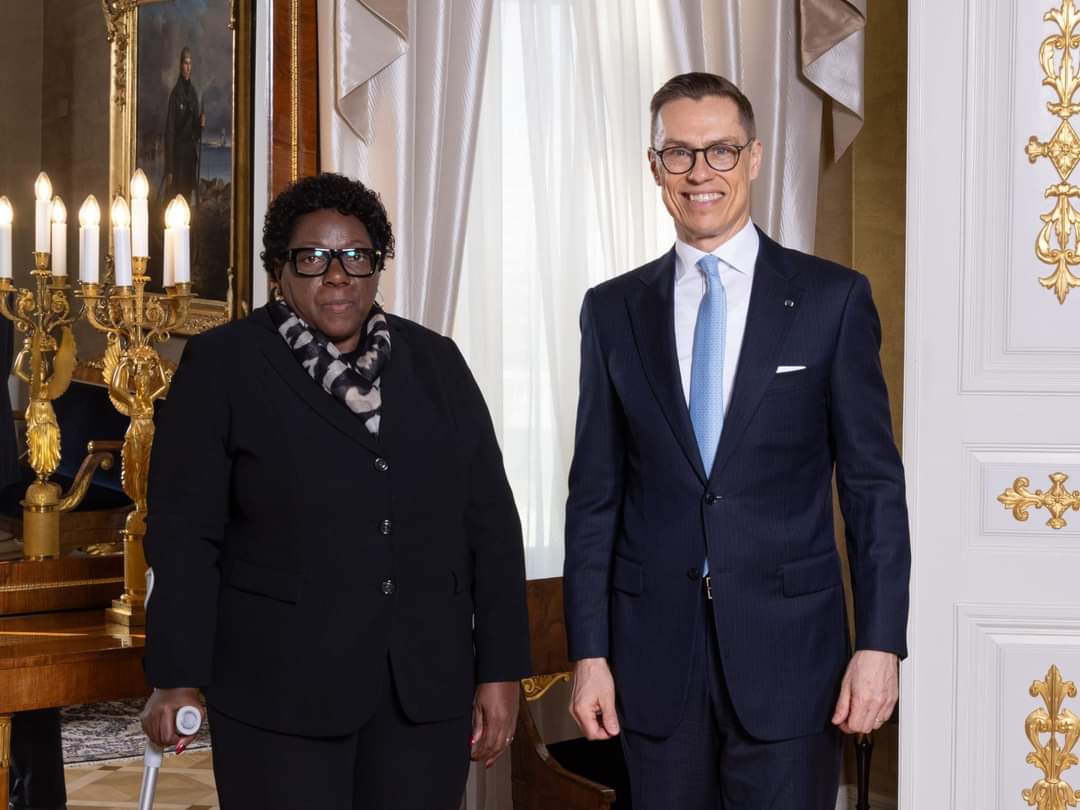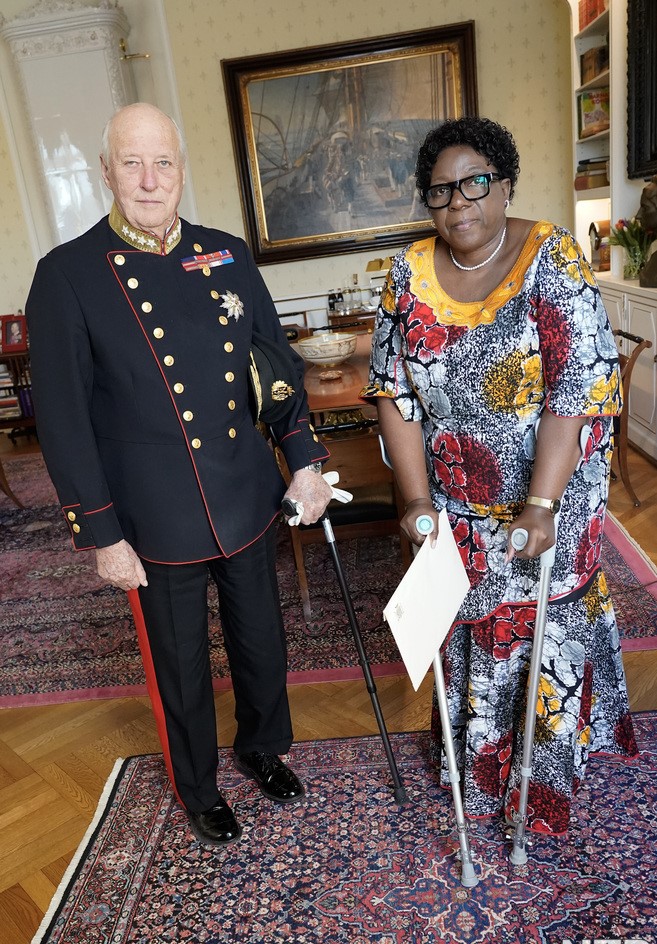Obituary: Zambia’s Kenneth Kaunda helped liberate Southern African countries
By Farai Shawn Matiashe – June 2021
Kenneth Kaunda, one of Zambia’s former presidents fondly known as KK, died at the age of 97 on 17 June. A pan-Africanist, Kaunda is being mourned at home and the continent. He will be most remembered for his unwavering support of Southern African nationalism.

Earlier this week, Kaunda’s office announced in a statement that the former President was not feeling well and had been admitted to a military hospital.
His death quickly went viral on social media, with many honouring the man who “founded Zambia” as the country’s first head of state.
Celebrated legacy
In July 1961, Kaunda organised a protest in Zambia’s Northern Province (what was then called Northern Rhodesia), which became known as the Cha-cha-cha campaign. It was one of civil disobedience and included strikes, setting ablaze key buildings or areas, blocking roads, boycotts and protests in Lusaka and across the country.
He got his inspiration for the protests from India’s Mahatma Gandhi and after visiting Martin Luther King Jr. in Atlanta, US in July 1960.
The campaign was named after the popular dance in the early 1960s, the ‘Cha-cha-cha’, as it signalled how it was time for Britain to ‘face the music’ of Zambian independence.
Also referred to as the “African Gandhi” for his non-violent activism, Kaunda led Northern Rhodesia to independence in October 1964.
With the country renamed Zambia, a derivative from the Zambezi River, KK became the first president of the new and free country.
His rule spanned nearly three decades until he stepped down after losing an election in 1991.
Kaunda’s role in the liberation of other African countries
Kaunda played a significant role to ensure other African countries also gained their independence from the European colonialists.
His regime allowed liberation movements from Namibia, South Africa and Zimbabwe to establish military bases, training camps, refugee centres and administrative offices in Zambia.
“He is the man who was dedicated to liberating South Africa and Zimbabwe, which was then Rhodesia. He is the man who could unite all the forces on his land,” Isaac Mabuka, Zimbabwe African People’s Union’s acting president and a former liberation fighter, who was among those housed by Zambia during the country’s liberation struggle, tells The Africa Report.
“He is the man who was a leader of a frontline state before all other states could call themselves the frontline, even before the independence of Mozambique. He is one of those men who gave the life of his people for the liberation of Zimbabwe.”
Mabuka adds that Kaunda sacrificed the economy of his country to liberate other Africa countries.
“I remember when his country was under sanctions. There was not even food. He was prepared to share the food for his people with thousands of Zimbabweans who had crossed to his country,”
He adds how the Zimbabwe People’s Revolutionary Army had several training camps in Zambia.
Rhodesian forces raided the camps in Zambia, killing innocent Zambians in a bid to discourage Kaunda from housing the anti-colonial fighters.
He stepped down after losing an election to an opposition party leader and handed over power peacefully after losing elections.
“When Kaunda lost the elections, he had all the arsenal and resources that could have kept him in power. But he decided to do the right thing and had to hand over power after 27 years,” political analyst Alexander Rusero tells The Africa Report.
“This shows that democracy is not an alien thing in Southern Africa, as in 1991 Kaunda relinquished power.
Politically active
Although he could no longer run for the presidency, Kaunda kept up his activist spirit.
He educated people and debunked myths about AIDS after he publicly announced that one of his sons had died from the disease.
KK also continued in politics, especially as a mediator in conflicts in the region, such as in Kenya and Zimbabwe.




